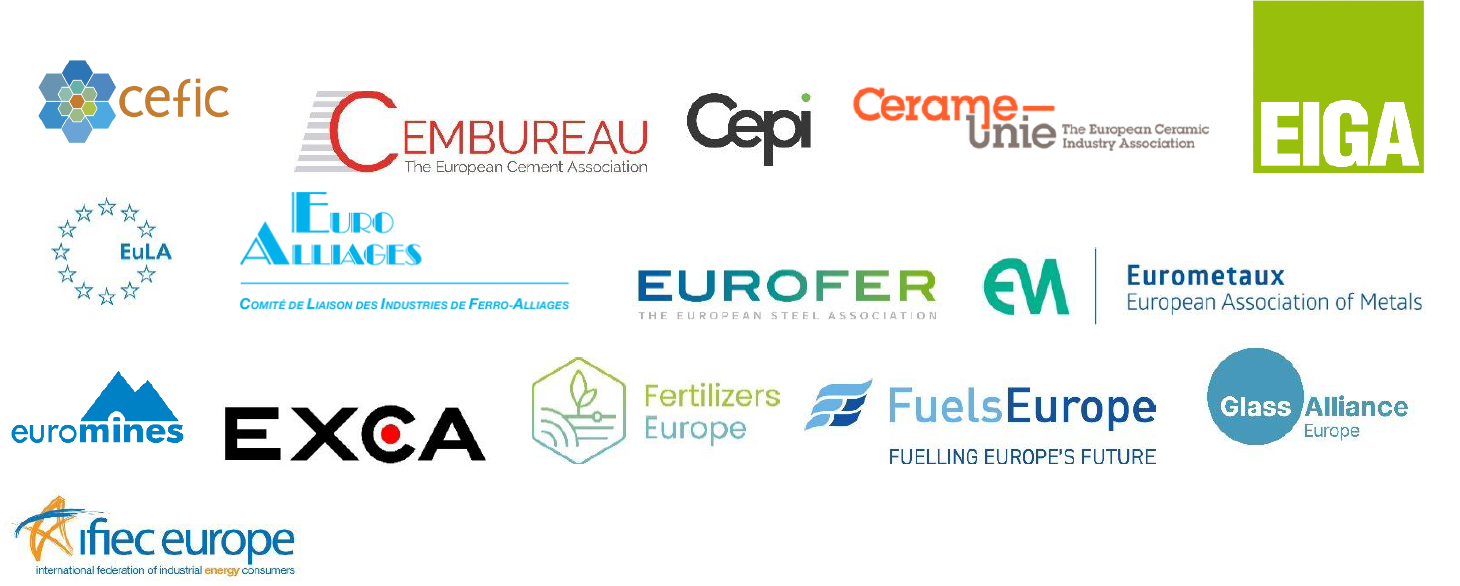Energy Intensive Industries welcome the EP vote on NZIA
Energy-intensive industries (EIIs) provide direct employment to around 2.6 million people and represent the foundations of critical and strategic value chains for the EU economy and society.
Our sectors provide materials which are indispensable for the decarbonisation of the industry and the economy as a whole and for the manufacture of the Strategic Net Zero Technologies identified in the draft Net-Zero Industry Act (NZIA), a regulation proposed by the Commission in March 2023 aimed at strengthening Europe’s net-zero technology manufacturing capacity. At the same time, energy-intensive industries will also be key users of these technologies, accounting for a major share of the demand.
This is why we commend the extension of the list of net-zero technologies to include in particular the “high-efficiency industrial process and electrification technologies for energy and carbon intensive industries” as well as the extension of scope of the act to cover components, products and materials starting with raw materials along the supply chains of net-zero technologies. Our sectors welcome the provisions to support the deployment of a pan-European carbon capture infrastructure. We also support the inclusion of sustainable alternative fuel technologies extended to all RED-compliant fuel technologies, as well as the necessary infrastructures this entails. This is a positive signal to the European industry and a step in the right direction for the Green Deal to be the growth strategy it aims to be. The Energy-Intense Industries also welcome the removal of a separate strategic list in favour of more open criteria that a net-zero technology project can achieve to become strategic.
On 21 November 2023 the European Parliament approved the ITRE Committee’s report on the Net-Zero Industry Act (NZIA). We continue stressing our asks that:
• The Net Zero Industry Act recognises the role of Energy Intensive Industries in providing products, material and affordable energy to strategic renewable and low-carbon value chains;
• The Net Zero Industry Act contains concrete measures for users of Net Zero technologies. For instance, easier permitting procedures as well as the ‘one stop shop’ concept should apply throughout the value chain – not only to manufacturers of technologies;
• The Net Zero Industry Act is complemented with a strong innovation funding to accelerate industrial decarbonisation. Both EU and national funding should be directed at greening Europe’s industrial base, including support for the rapid deployment of breakthrough technologies. The conditions to access to EU and national funds must be simplified. The funding should encompass both CAPEX and OPEX support. The OPEX support can be applied for a short term similar to the US IRA mechanism to ensure fair competition and a level playing field;
• The Net Zero Industry Act identifies strong resilience and sustainability criteria to be applied in auctions and tenders supporting European domestic production capacities with lower environmental footprint via European content criterion.
We remain ready to engage with the Commission, Parliament and Member States to achieve successful outcomes for European Energy Intensive Industries and our many stakeholders across European Society.



